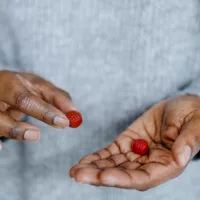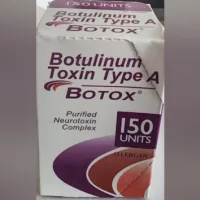 iStock/Thinkstock(NEW YORK) — Those prone to sunburn are no strangers to the healing properties of aloe vera. After all, the soothing succulent has been used to treat inflamed complexions for over 6,000 years.
iStock/Thinkstock(NEW YORK) — Those prone to sunburn are no strangers to the healing properties of aloe vera. After all, the soothing succulent has been used to treat inflamed complexions for over 6,000 years.
But some enthusiasts have begun to incorporate the plant into not only their beauty routines, but also their diets. Katharine L’Heureux, who founded cult skincare line Kahina Giving Beauty in 2008, happily admits she’s drunk the “Kool-Aid.”
“We all know [aloe vera] heals sunburns, so it obviously has therapeutic properties,” she said.
“In terms of cosmetic use, it’s great,” L’Heureux said. “It’s lightly moisturizing without being greasy.”
The plant’s restorative potential so convinced L’Heureux that she based two Kahina products on it. Aloe vera leaf juice is listed as a lead ingredient in both Kahina Toning Mist and Kahina Night Cream. But while she had long used it “on its own” as a cooling treatment, L’Heureux had never sipped the hallowed stuff until a few weeks ago.
Last month, celebrated French facialist Kristina Holey prescribed L’Heureux the aloe-based elixir and guaranteed her a perceptible difference in the clarity of her skin.
L’Heureux confirmed that the practice, which is said to support good digestion, has had the promised effect: “It’s a holistic approach to skincare,” she said. “I just love it.”
Sabrina DeSousa, co-owner of health-conscious eatery Dimes in New York, is a believer as well.
“I take an ounce of aloe juice in the morning with apple cider vinegar,” said DeSousa, who blends aloe juice into the shop’s signature rose-water spray. “It’s not something I necessarily do every day for long periods of time. But I’ve been doing it on and off for about two years now.”
Rattling off the health benefits most often associated with the vitamin-rich juice and touted by L’Heureux and DeSousa, Real Nutrition founder Amy Shapiro, a registered dietician, told ABC News that she recommends a shot of it to dull-skinned patients seeking brighter complexions.
“It’s a great source of vitamin B-12 — especially for vegetarians and vegans, because that tends to be a vitamin that they’re lacking,” she said. The wonder plant, which is available at specialty stores and trendy outfits such as The Juice Press and Liqueteria, is also rich in antioxidant vitamins A, C and E, which are thought to combat free radicals.
“It’s 99 percent water, but it contains healing properties that act as an anti-inflammatory in the body,” said Lauren Felts, founder of The Holy Kale. Felts noted that the glycoproteins and polysaccharides that occur in aloe vera can help reduce swelling, calm intestinal disorders such as Crohn’s disease and Irritable Bowel Syndrome, and even stabilize blood sugar.
Just don’t expect the tincture to go down easy.
“The flavor can be a little much for some people,” Shapiro said, which is why she advises that first-time imbibers mix it into a green juice or dissolve it in lemon water.
“The outside of the leaf can have a laxative effect, so start slowly,” Shapiro cautioned.
Converts claim the payoff is worth it. Shapiro emphasizes to clients that digestive health and radiant skin “go hand in hand.” Felts reminds them that many are more dehydrated than they realize.
Aloe vera “is extremely hydrating,” she said. It holds off thirst that can cause symptoms of exhaustion, fatigue and hunger. According to Felts, “an improvement in digestion” is the first benefit that those who drink it are going to enjoy.
“Eighty percent of your immunity lives in your gut,” DeSousa noted. “It’s just one of the things that you should definitely take care of. This is one good way to do it.”
Follow @ABCNewsRadio
Copyright 2014 ABC News Radio















